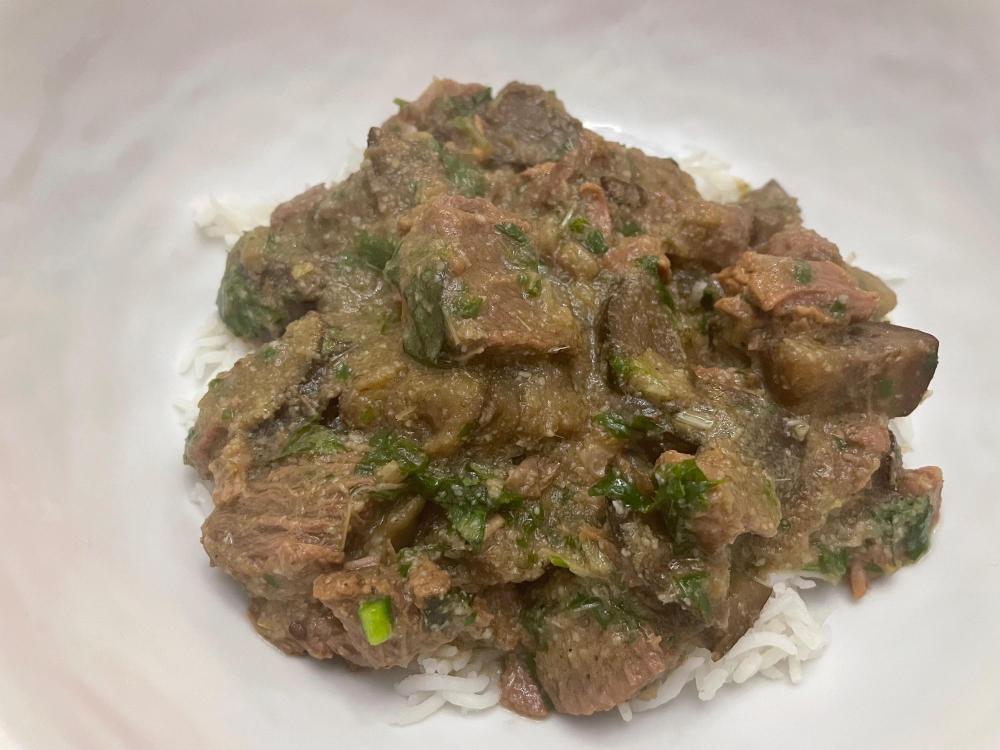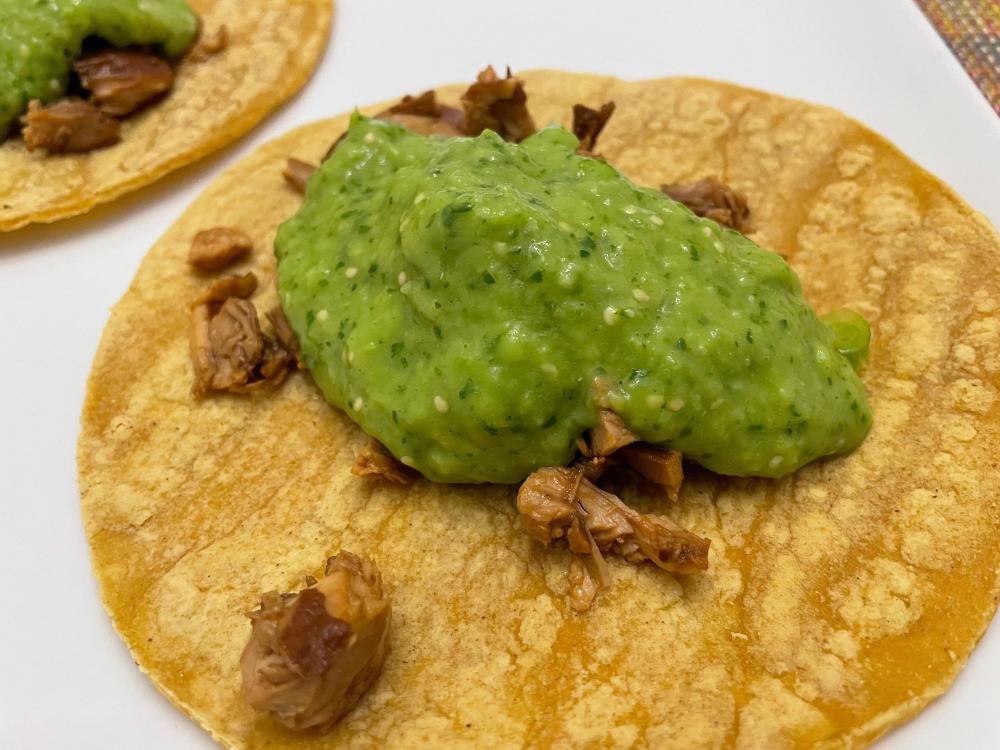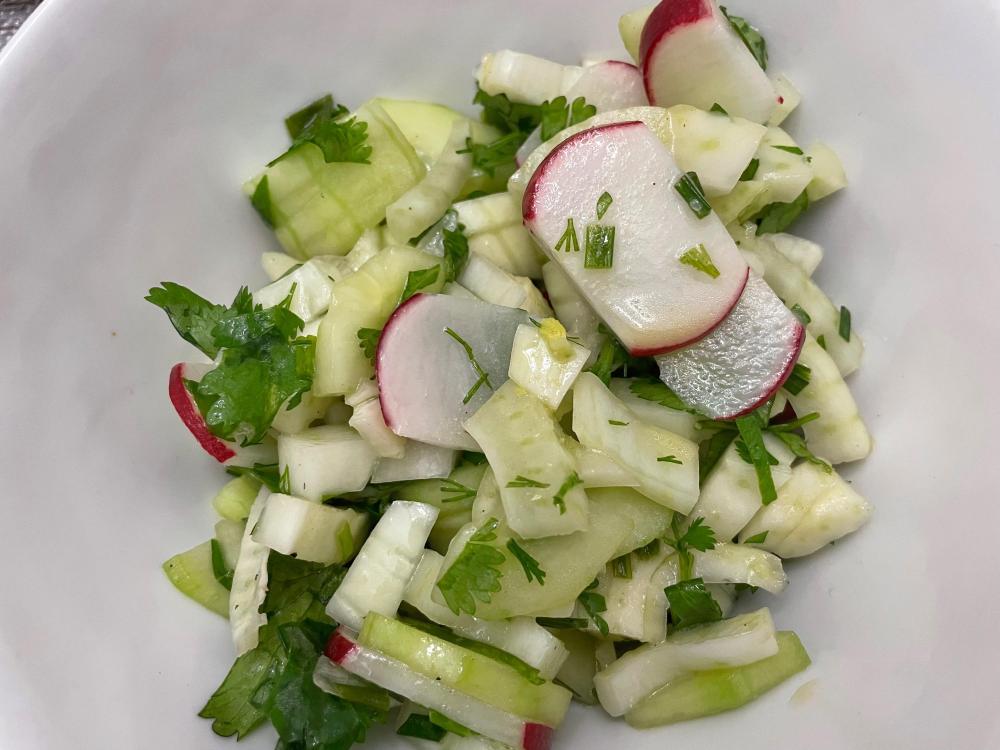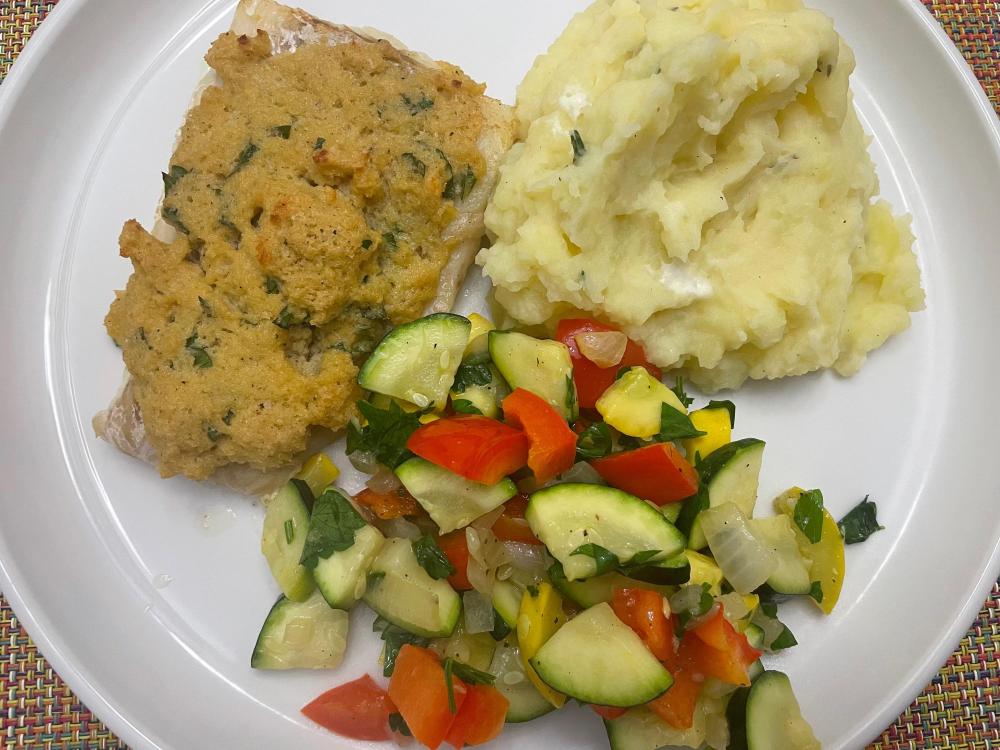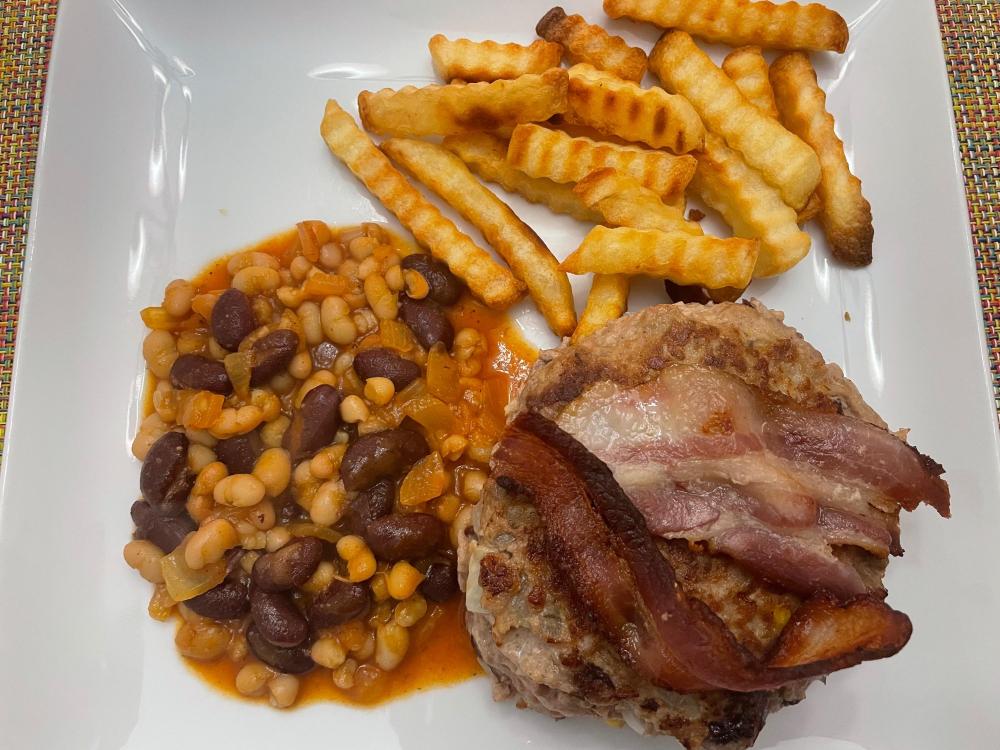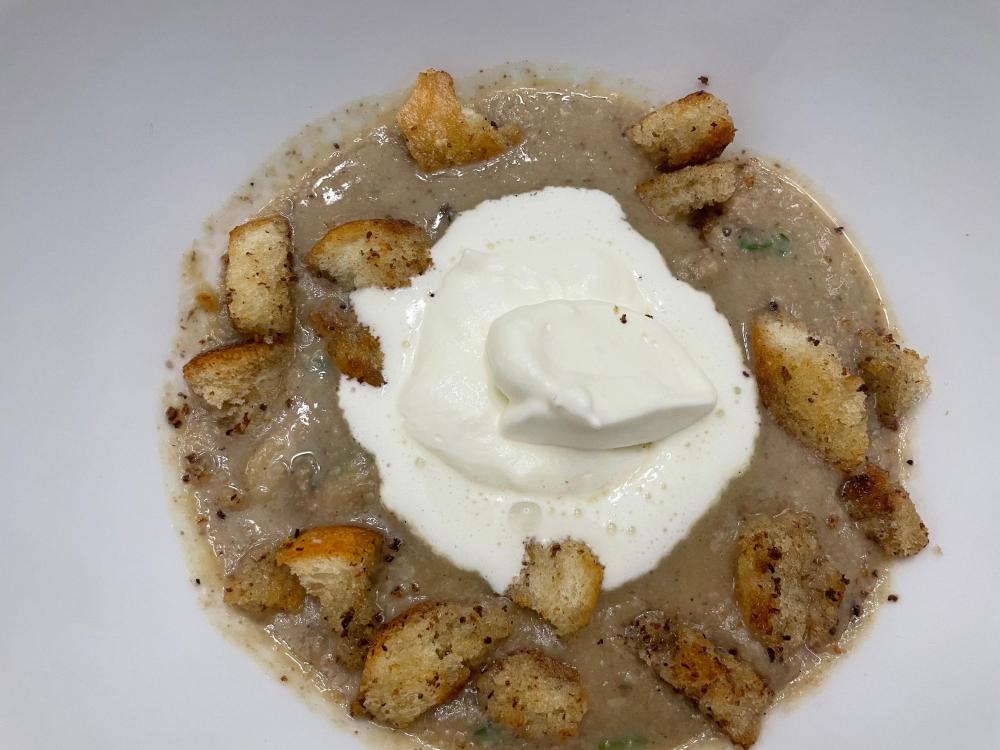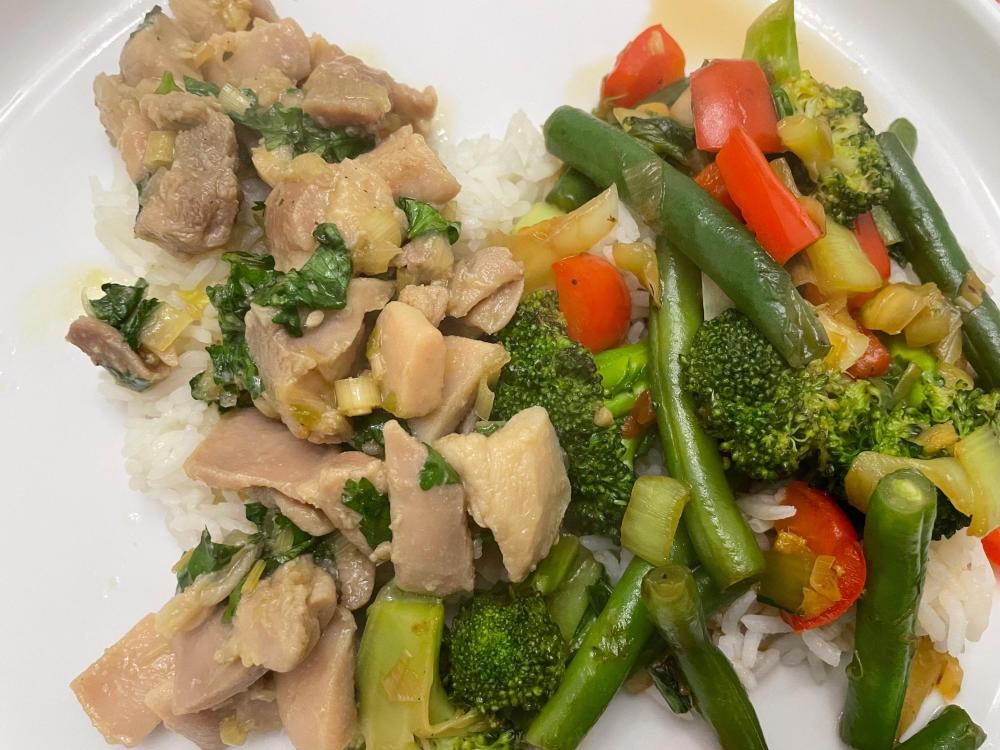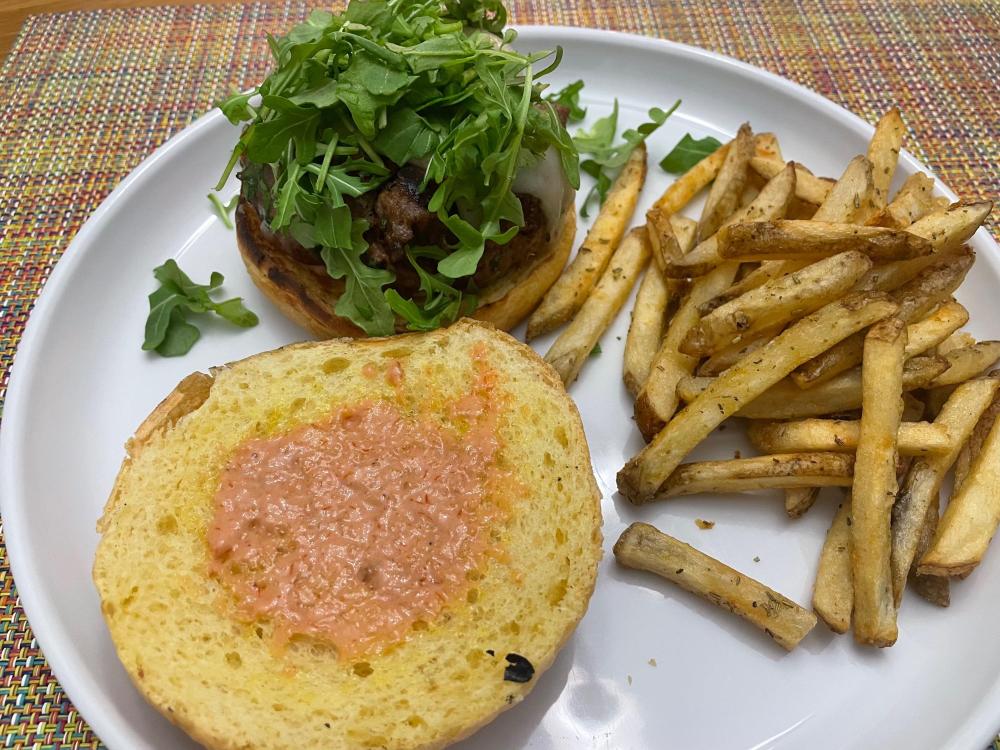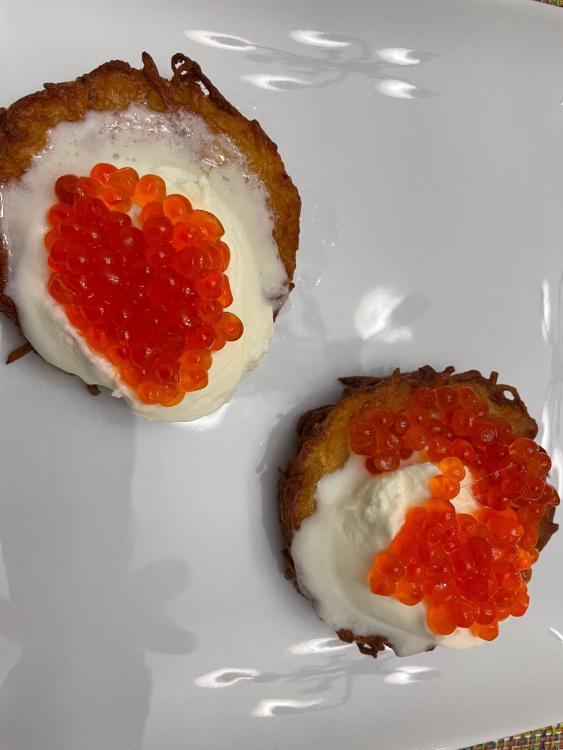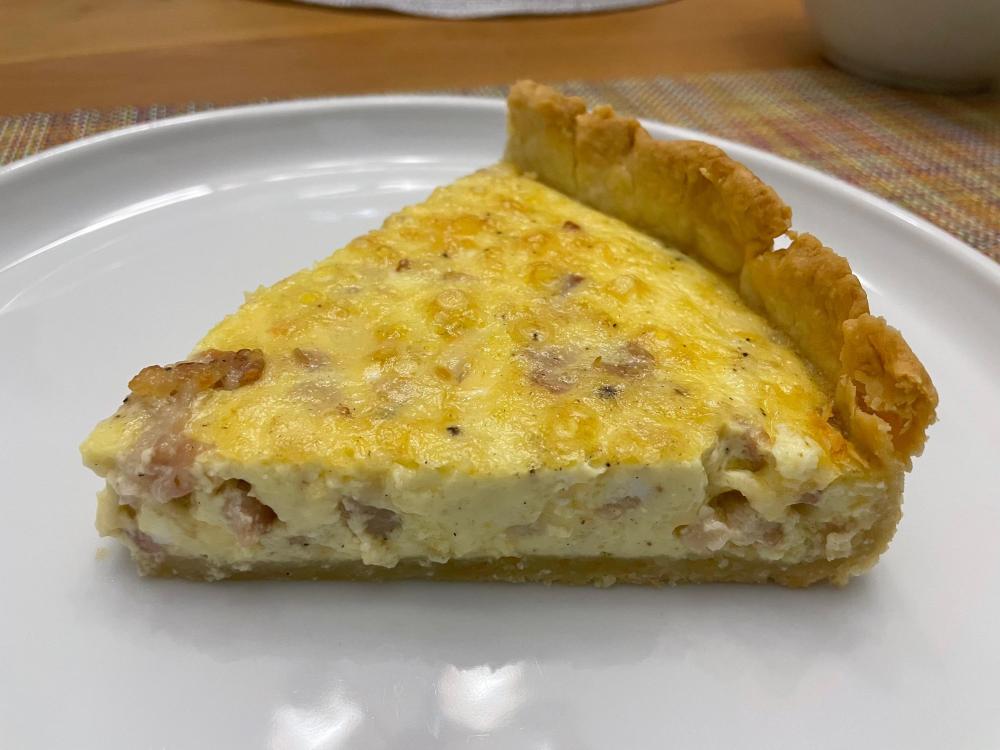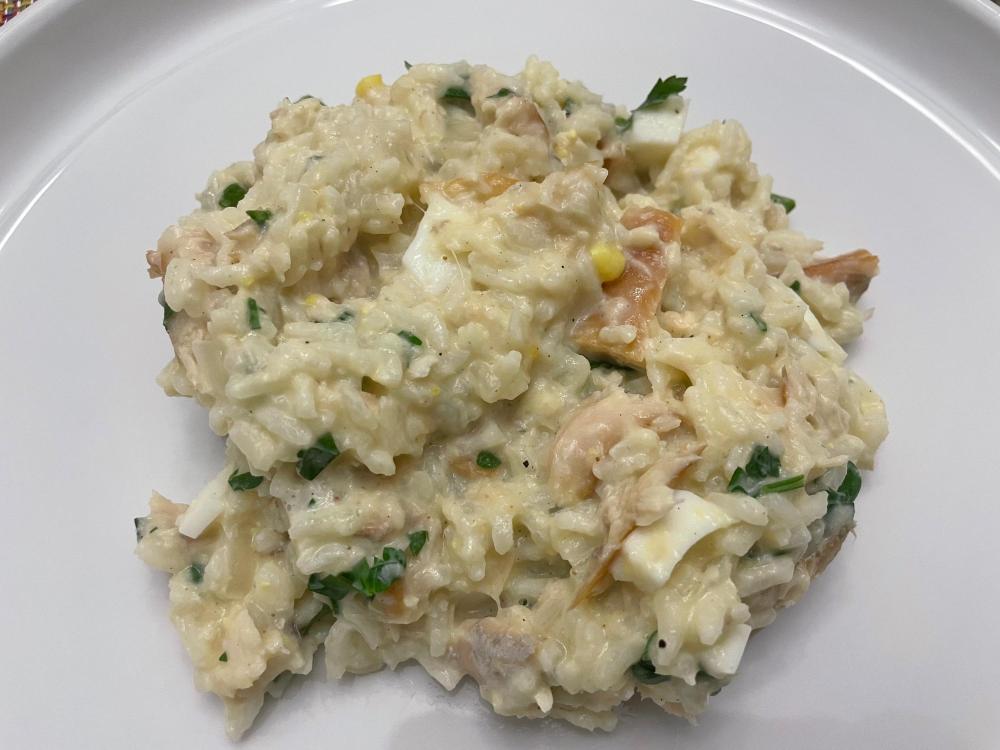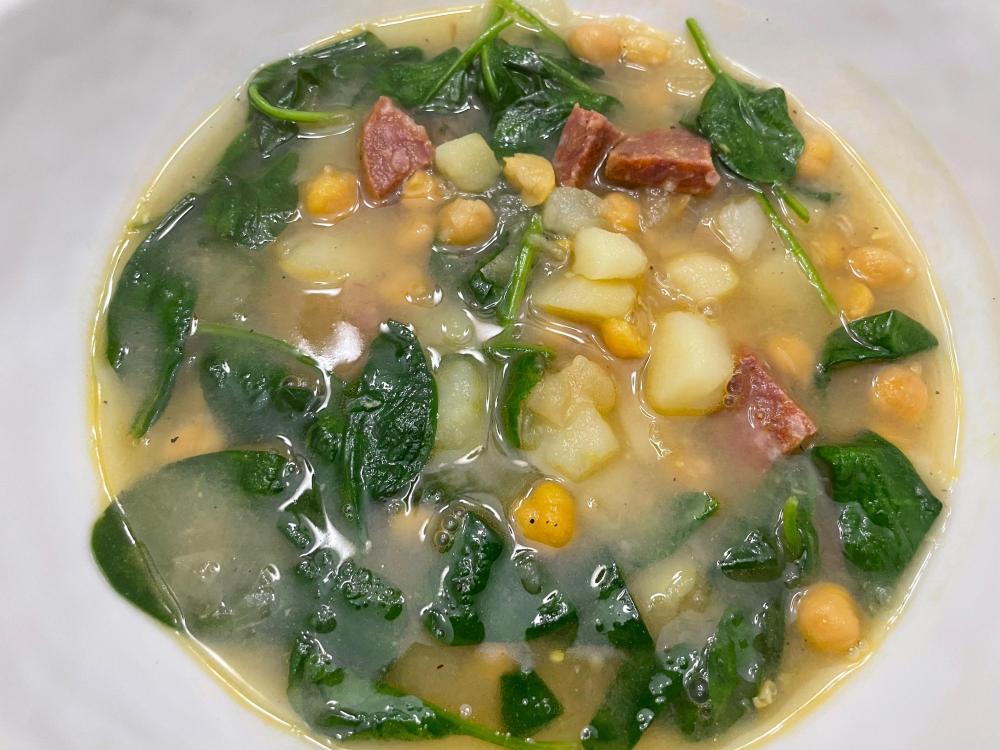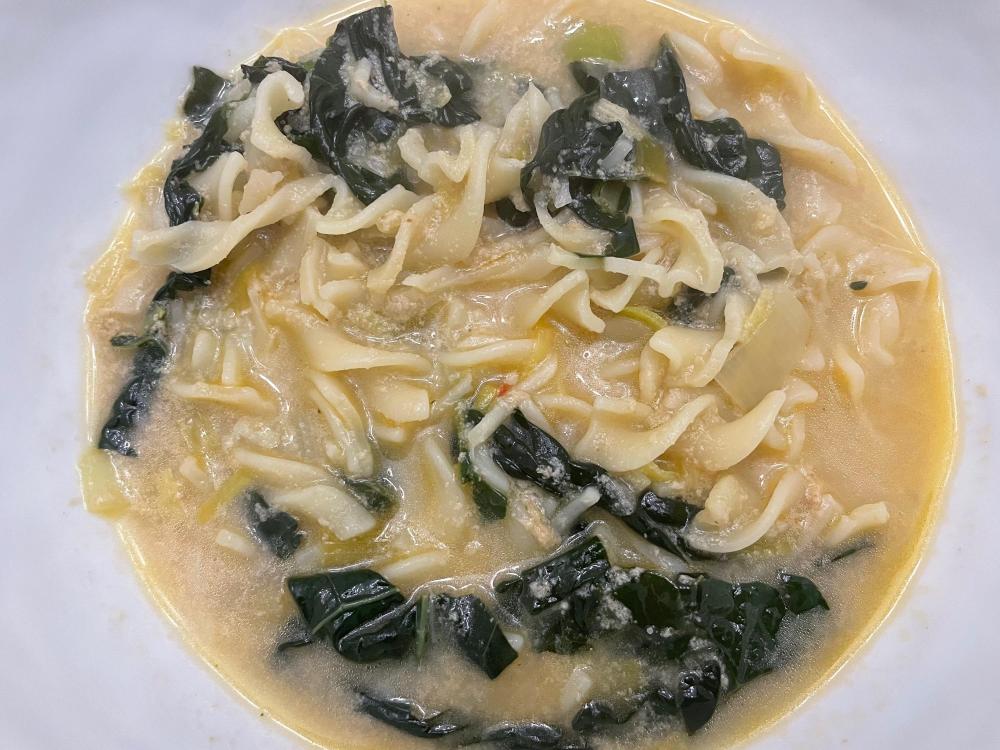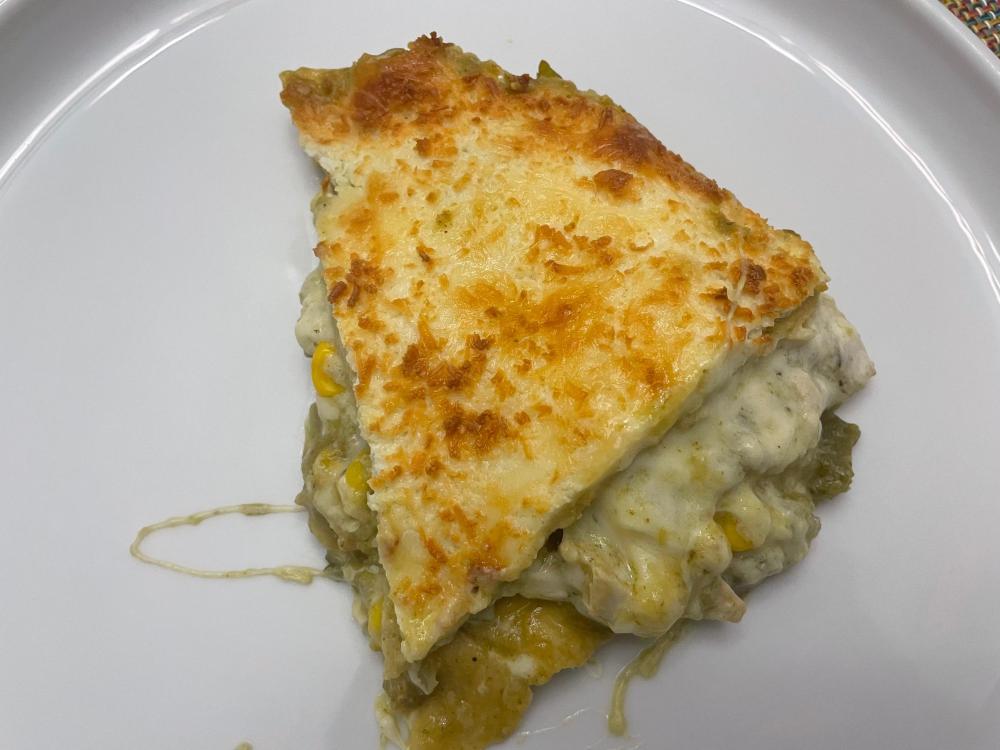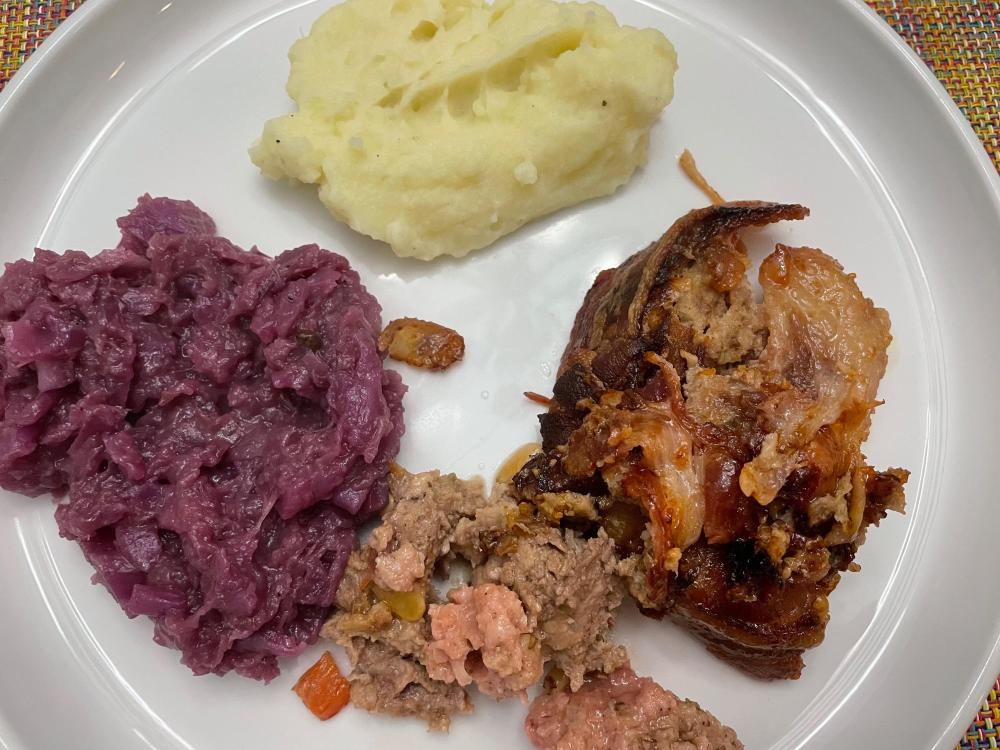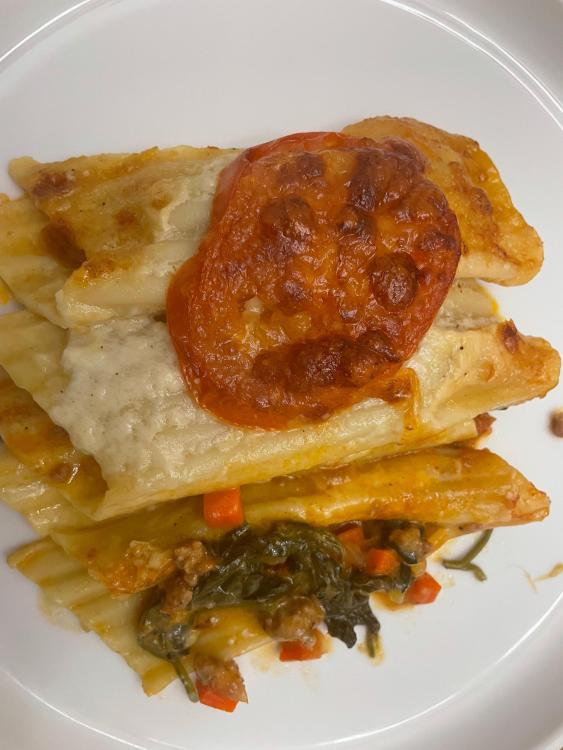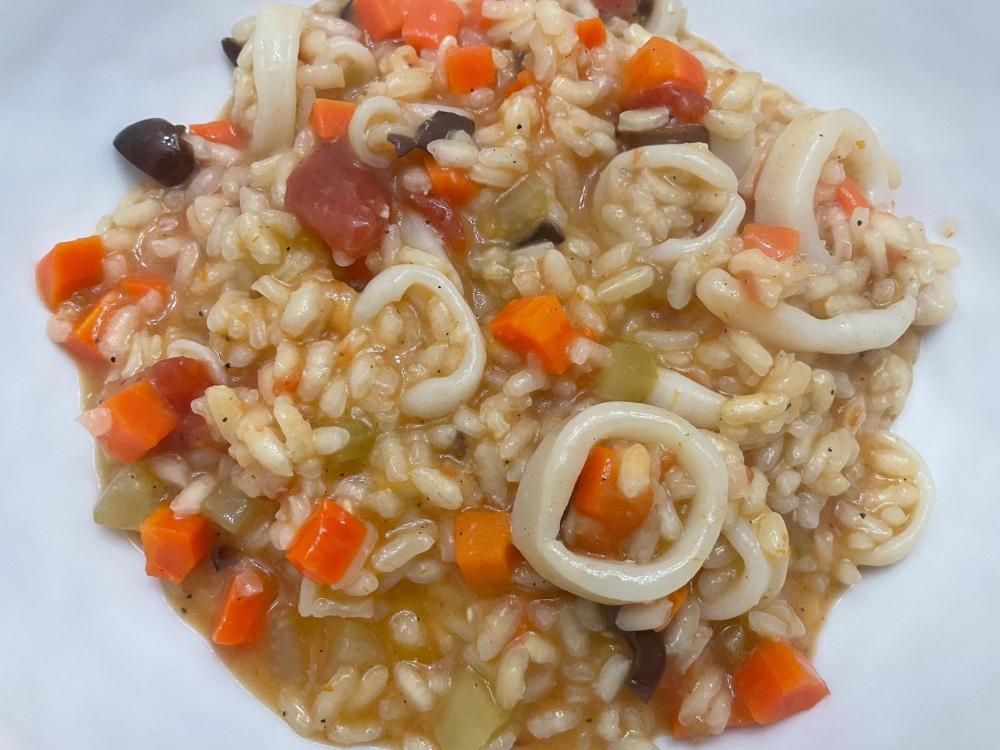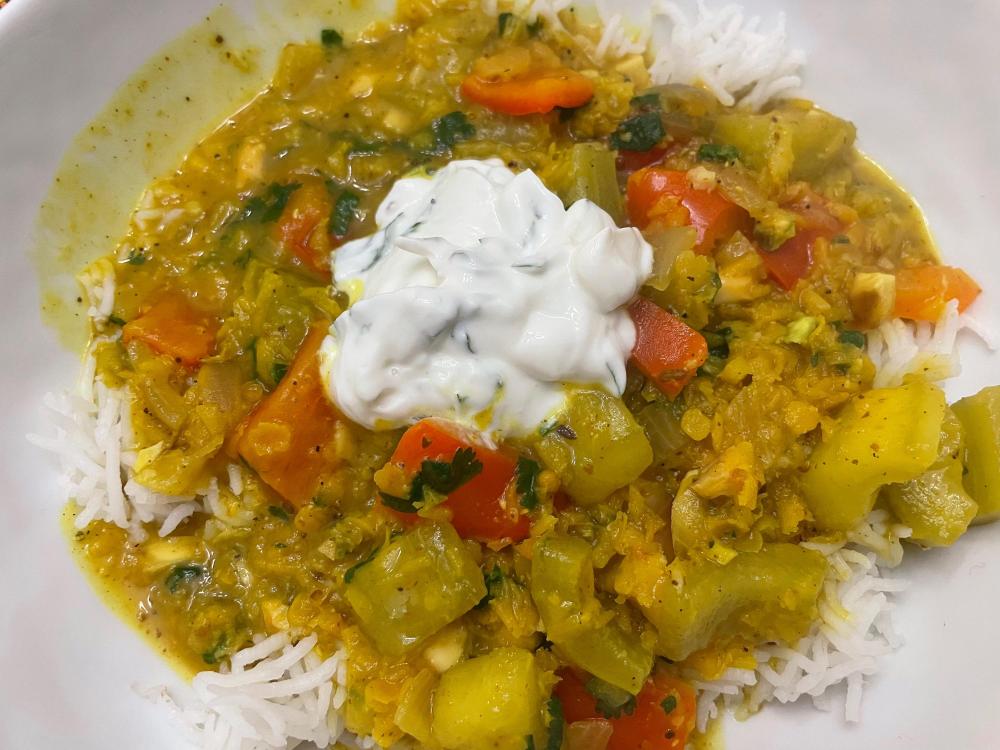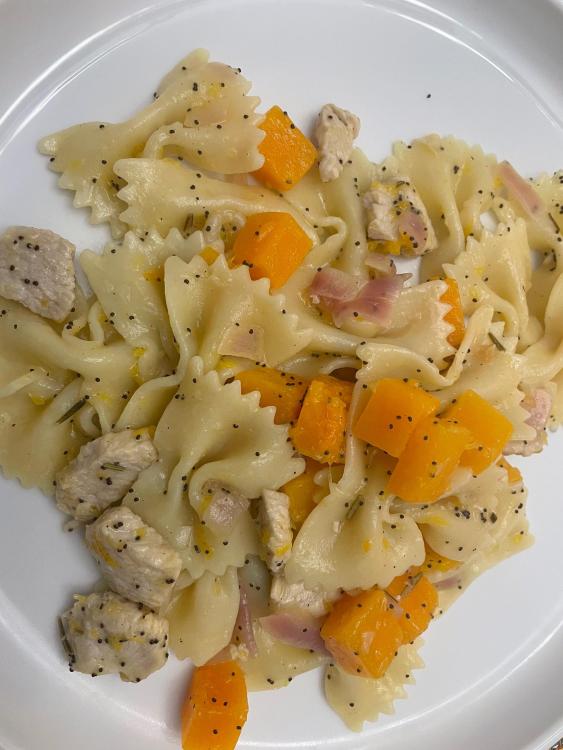-
Posts
1,315 -
Joined
-
Last visited
Content Type
Profiles
Forums
Store
Help Articles
Everything posted by Honkman
-
Acids denature proteins, e.g. ceviche, and since buttermilk is slightly acidic (lactic acid) it will denature (tenderize) proteins at the surface of the chicken meat. It might also give a slightly tangy flavor in the final product
-
Just a simple dressing of olive oil, champagne vinegar, dijon mustard, salt and pepper
-
I think it might have helped as I was using really high heat to get nearly a “crust” in the eggplants
-
Thai inspired beef-eggplant curry with beef chuck braised in coconut milk and beef stock with a paste made out of ginger, shallots, garlic, jalapeño, lemongrass and key lime leaves. Added sautéed eggplants for the last 20 minutes and finished with fish sauce, brown sugar, lime juice, puréed cilantro, thai basil and quickly fried garlic.
-
Not that his previous book was bad but he adds a lot of marketing/self promotion to the equation. Some of his recipes are good, some are quite bad and his spin on “new/never seen before techniques”can be a bit tiring (especially if they are not that new.)
-
Chicken Adobo Tacos (chicken thighs braised in white vinegar, soy sauce, dried chilies, tons of garlic, cinnamon stick) with a tomatillo-avocado salsa (from Wes Avila’s book Guerilla Tacos - if you like some creative tacos I can only highly recommend the book) And a salad of fennel, cucumber, radish, parsley, dill and chives with a honey-mustard vinaigrette
-
Cod with a mustard-bread crust finished under the broiler, mashed potatoes with milk, cream cheese, thyme and nutmeg and some briefly sautéed vegetables (green and yellow zucchini and red pepper)
-
Hacksteak (typical German mix of something between small meatloaf and a hamburger patty) made with mix of ground beef and pork, onions, moistened bread roll, corn, kidney beans and egg. (and some crisp bacon in top). Served with a mix of beans in a tomato sauce and fries
-
Just out if curiosity- looking at the different restaurant photos, is anybody wearing a mask inside ?
-
Mushroom Soup (with white mushrooms, dried porcini powder, onion and 2-3 small potatoes to give some body) finished with croutons and whipped cream
-
Vietnamese chicken thighs (marinated overnight with jalapeño , lemongrass, fish sauce and sugar) and some quickly stir-fried vegetables (broccoli, green beans, red pepper, bok choi, scallions) over rice (and still no idea how to plate dishes that they don’t look like you accidentally dropped the plate)
-
That really sounds like horrible pacing/timing by the restaurant (and pandemic isn’t really an excuse)
-
Mediterranean inspired beef burger with sun-dried tomatoes, shallots, oregano, parmesan, parsley covered with arugula
-
Latkes with caviar (from a restaurant) Homemade Quiche Lorraine and finished the night with banana soufflé with raspberry sauce
-
-
-
Red Curry Soup with leeks, cavolo nero and egg noodles - the soup wasn’t as red as expected as our current red curry paste is much hotter than expected and so just two teaspoons were enough instead of the suggested four tablespoons. Interesting flavor combinations as the base with red curry paste, tahini, honey, soy sauce and butter.
-
It is hard to take any chef serious who has such “health” claims associated with his own cookbook. If you don’t have celiac or a missing enzyme there is no serious clinical data even remotely supporting that eating gluten, dairy l, grains etc is detrimental to your health. I might have ignored such book comments a few years ago but with two years of pandemic life where it became clear that too many people are ignoring science, even if it might kill others, it is even more important to constantly pointing out any science quackery.
-
Pastel Azteca with corn tortillas, tomatillos, poblano chili, chicken thighs, corn, cilantro, cumin, creme fraiche, monterey jack, cotija cheese - the poblanos had more heat than usual but added a nice bite to the dish
-
Mediterranean inspired meat loaf (with roasted red peppers, capers, pine nuts, oregano, lemon zest, garlic) wrapped in bacon with braised red cabbage and mashed potatoes
-
Manicotti with a filling of salsicce, carrots and tomatoes baked on a bed of spinach with bechamel (not the most photogenic food but very tasty)
-
Risotto with fresh calamari (and carrots, celery, tomatoes, olives and parmesan (ignoring all Italian rules)
-
Schmorgurken-Curry - schmorgurken are a special type of cucumbers quite popular in Germany which are less watery and can be braised (schmoren in Germany). We haven’t found such “braising cucumbers” in the US but you can also use regular cucumbers. This curry included ginger, garlic, cumin, coriander, mustard seeds, cardamom, cinnamon sticks, turmeric, lime zest and juice in vegetable stock and coconut milk. Served over rice and yoghurt-mint dip and some nut mixtures for texture.
-
Yes, briefly until you can smell this slightly nutty flavor
-
Pasta with butternut squash, turkey breast, rosemary and poppy seeds with an orange juice based sauce





